
2024 Excellence Awards Finalists
Congratulations to the Finalists in the Engagement Australia 2024 Excellence Awards.
These Awards identify and celebrate the most exciting engagement activities undertaken by universities that demonstrate far-reaching impact and innovation in the Australian and New Zealand economy and community.
The Awards Judging Panel have commented on the exceptional quality of the submissions received this year.
Celebrate with us as we announce the winners of our annual Excellence Awards for Engagement, recognising the most impactful and purpose-driven engagement leaders across Australia and New Zealand. Monday 11 November, 6.30pm – 9.30pm
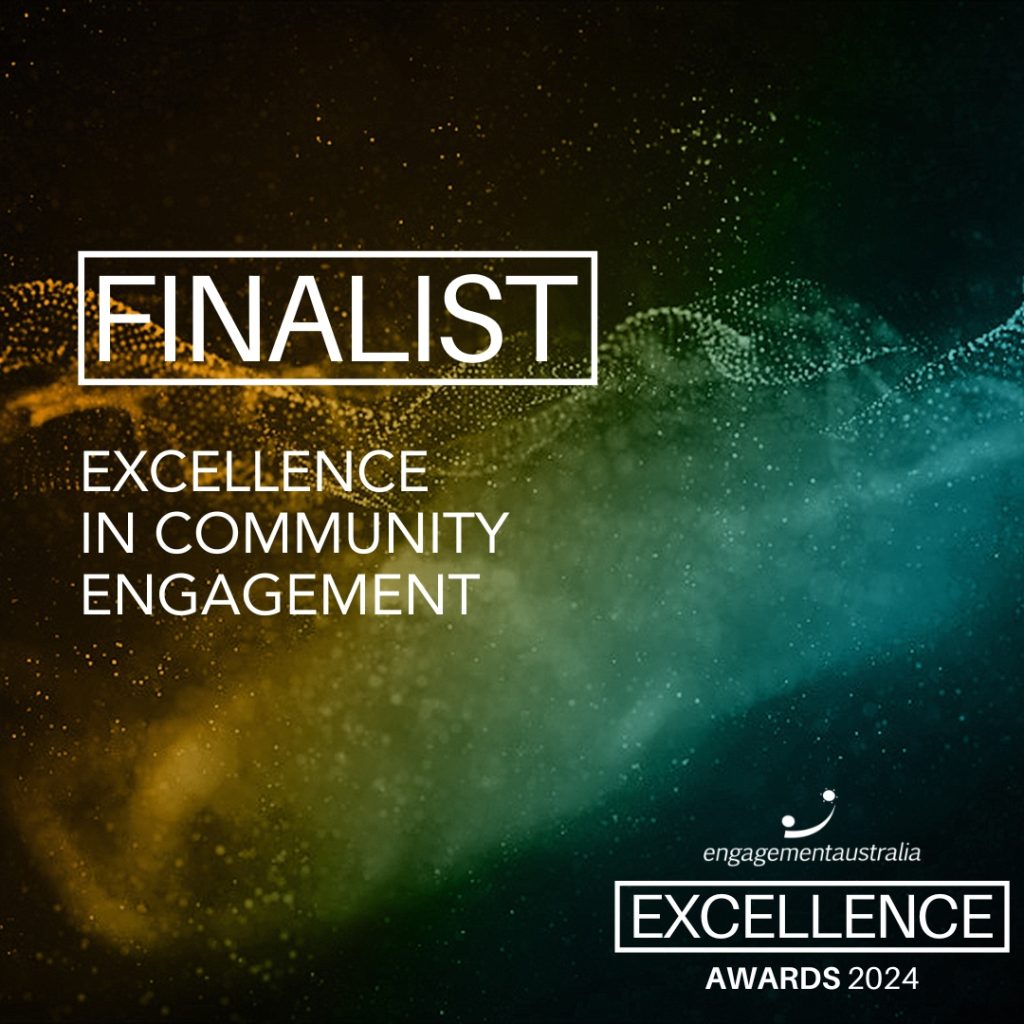
Children's University Passport to Learning, Children's University Australasia and Africa
Children’s University recognises the importance of time spent wisely beyond the classroom. Following research highlighting the importance of early learning initiatives, programs harness a multi-layered learning network that brings together families, schools, community groups, local businesses, researchers, future industries and arts/cultural organisations to offer children (5-18) access to extra-curricular learning connected with the real world, their interests and aligned to higher education and career possibilities. The outcome is improved student retention in the long term and, importantly, that young people are supported in their aspirations while developing critical skills and a sense of belonging within a wider community.
The Shed at Emerton, Western Sydney University
The Shed is a program established in 2004 by the Men’s Health Information and Resource Centre (MHIRC) of Western Sydney University (Western). The Shed provides support to men (aged 16 plus) considered to be at risk of serious stress and suicide, generally because of cumulative stress often due to disadvantaged situations. Our Aboriginal and Torres Strait Islander community have been identified as a priority population of the Towards Zero Suicide Initiative. The Shed operates from a site in Emerton, on the grounds owned by the Holy Family Parish, funded from the Western Sydney Primary Health Network via WentWest.
Service Learning in Indigenous Communities (SLIC), University of Sydney
Since 2020, Service Learning in Indigenous Communities (SLIC) has provided interdisciplinary opportunities to listen, learn and apply student knowledge to help address priority challenges with Aboriginal and Torres Strait Islander people. SLIC draws together genuine community aspirations and voices within essential projects co-designed and co-directed by Aboriginal and Torres Strait Islander organisations. In 2023/2024, 106 SLIC students helped elevate Aboriginal voices and innovative ideas with NSW North Coast Aboriginal Development Alliance to address the severe Aboriginal housing crisis and completed five projects (five more underway) with Girringun Aboriginal Corporation supporting governance, education, economic development, Indigenous Protected Areas and organisational communication.
Sustainable Farms, Australian National University
The ANU Sustainable Farms initiative is rooted in extensive interdisciplinary research. It integrates biodiversity conservation with agricultural practices, focusing on Australia’s temperate woodlands. The initiative builds on one of the world’s largest long-term studies, offering significant evidence for effective landscape management and conservation on farms. Sustainable Farm’s ground-breaking Natural Asset Farming approach guides farmers in enhancing biodiversity. By transforming farm landscapes, it supports biodiversity, improves ecosystem resilience and improves agricultural productivity. Sustainable Farms commits to research translation and community engagement through events, resources and collaboration with Natural Resource Management professionals and Landcare networks, enhancing regional conservation efforts and agricultural sustainability.
UQSchoolsNet, The University of Queensland
UQSchoolsNet, launched in 2008, provides STEM professional development for educators in Queensland, with a focus on integrating digital technologies into the classroom. Since 2021, over 64 teachers have participated in the program, which includes courses in Artificial Intelligence, Cyber Security, and more. The initiative also supports 70+ schools with reliable internet services, enabling access to UQ’s educational resources. UQSchoolsNet is particularly innovative in offering fully funded programs for regional and rural teachers, promoting digital literacy and technology skills. The program strengthens ties between secondary education and the University of Queensland, fostering smoother transitions for students into higher education.
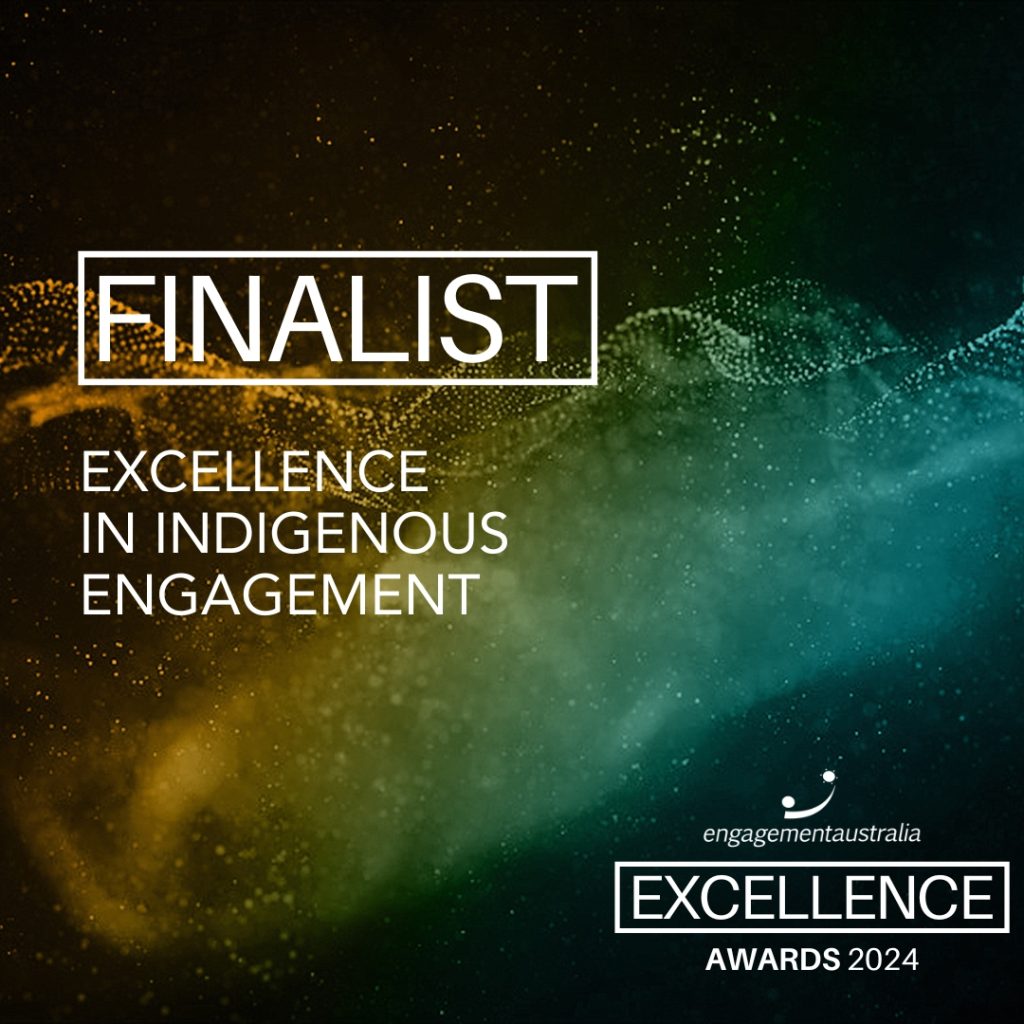
Gunaikurnai Country cultural heritage, education, training, employment and management of Country, Monash University
This GLaWAC-Monash University landmark partnership is a unique collaboration whereby the Indigenous community work with world-leading archaeologists to identify culturally important sites and research questions, and carryout scientific work to produce world-first, cutting-edge archaeological and historical findings. The partnership has brought to light profound details of the sites’ history, including evidence of rituals dating back 500 generations. The community-led two-way research partnership has provided important educational and career opportunities for GLaWAC members, including young people, and has provided the Indigenous and academic communities with culturally apt and rigorous knowledge of Aboriginal culture, historical ways of living, and landscape change.
Heartbeat and Pathways to Dreaming, Western Sydney University
Western Sydney University’s Heartbeat and Pathways To Dreaming programs are innovative, longitudinal initiatives which strengthen aspiration and engagement among Aboriginal and Torres Strait Islander primary and high school students. Grounded in the Aboriginal Cultural Framework of the Four R’s – Respect, Responsibility, Reciprocity, and Relationships, the programs have been instrumental in fostering sustained relationships and positively impacting students’ cultural identity and university aspirations. Working with 90 schools and over 4,000 students, participants are supported and encouraged to achieve their educational goals through immersion in academic and cultural enrichment workshops developed and facilitated by the Indigenous Engagement team.
Pathways in Place, Griffith University
The community-led and driven Pathways in Place program at Griffith University empowers Indigenous, Māori and Pasifika communities in Logan, Queensland. University staff partner with community-controlled organisations based in Logan to support innovative education, health, and justice programs that elevate the voice and agency of culturally strong but underserved communities. The program has seen the creation of: an Indigenous-led Health Justice Partnership to reduce infant removals and strengthen maternal health; an innovative Pasifika-led Registered Training Organisation; a Māori cultural connection program in schools and youth justice settings; and an Indigenous intergenerational early childhood and transition to school program.
Aboriginal Community Justice Reports for Sentencing Courts, University of Technology Sydney
The Aboriginal Community Justice Report project is the first program of its type in Australia to build Indigenous-led reports into criminal sentencing to reduce Indigenous incarceration. The initiative is possible due to the partnership between the Victorian Aboriginal Legal Service and the University of Technology Sydney. These reports have resulted in individualised justice in sentencing, increased confidence of Indigenous people in the sentencing processes, and a greater number of non-custodial sentences where the Indigenous person would have otherwise been imprisoned. The reports represent a form of truth telling in criminal courts and support the healing journey of Indigenous defendants.
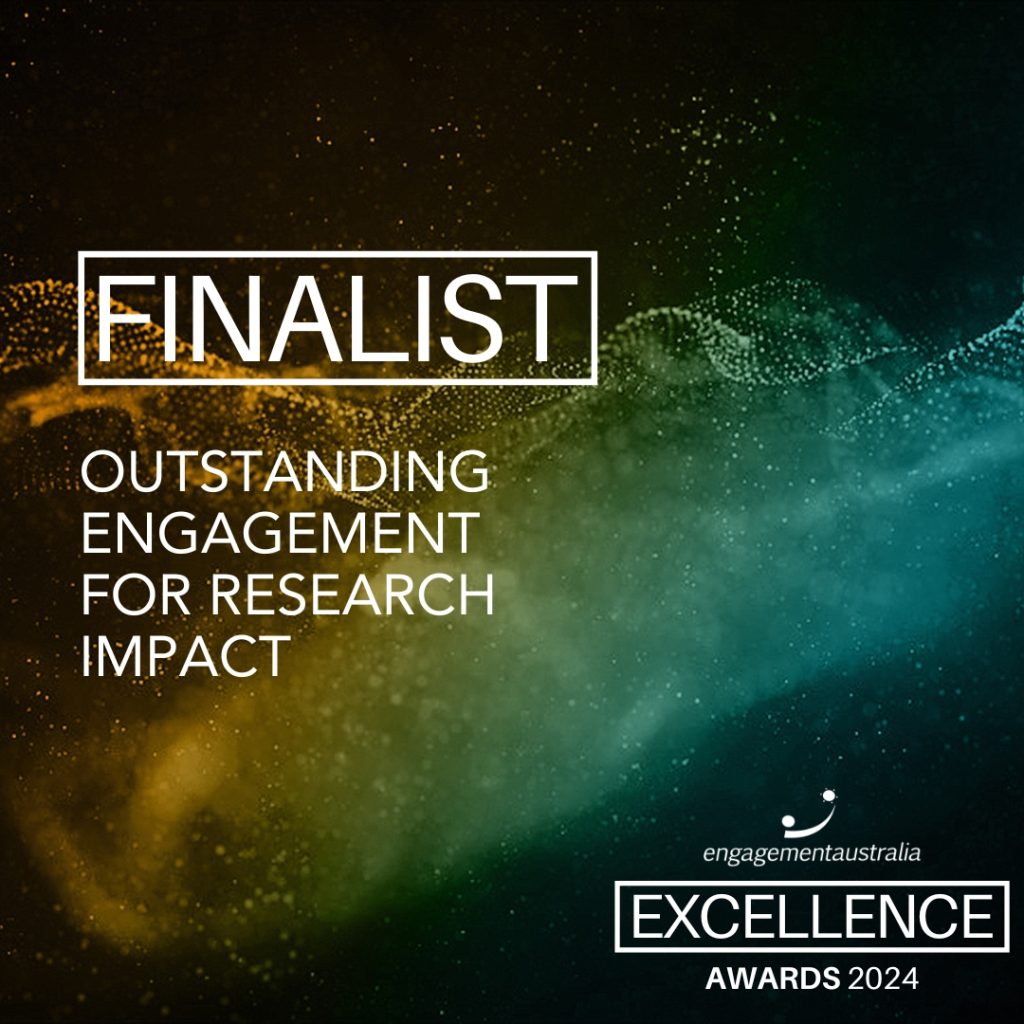
Economics of Cancer Collaboration, Deakin University
The Economics of Cancer Collaboration (EOCC) has been instrumental in improving Australian cancer care since 2017 through rigorous program and policy-focused economic research. Led by Associate Professor Nikki McCaffrey (Deakin Health Economics) and Todd Harper AM (Cancer Council Victoria), the benefits of the EOCC partnership include prolonging healthy lives by over 52,000 years and reducing healthcare costs by $86M. The EOCC team has also attracted $2.3M research funding, published 17 works, given 40 presentations and informed clinical guidance, education, policy briefs and fora. Their work has shaped public policy, cut costs and improved countless lives.
Advancing Refugee Employment, University of Sydney
The Advancing Refugee Employment project is an innovative cross-sector impact and research partnership. The project has advanced employment opportunities for several hundred refugees, mobilised and supported multiple businesses in advancing inclusive recruitment strategies, and aided policymakers in designing meaningful incentives to address the urgent socio-economic needs of humanitarian migrants. The team has produced multiple industry guides, policy reports, educational materials, media articles, and over 20 research publications. Recognised with international awards, including the Academy of Management Research Impact on Practice, the project addresses a pressing socio-economic challenge while showcasing the powerful impact of cross-sector partnerships in creating sustainable societal change.
Daughters and Dads Active and Empowered, The University of Newcastle
‘Daughters and Dads Active and Empowered’ is an evidence-based program that engages fathers/father-figures & their primary school-aged daughters to promote physical activity, enhance sport skills, boost wellbeing, strengthen the father-daughter bond & advance gender equity. Developed at the University of Newcastle, the initiative is driven by innovative collaborative partnerships with government and industry. The program’s scale-up across NSW, partnering with NSW Office of Sport and peak sporting bodies, has led to further innovation and success nationally and internationally, reaching over 6100 participants and earning prestigious accolades for research excellence and benefiting society, including commendation by the World Health Organisation.
The Melbourne Waterway Research-Practice Partnership, The University of Melbourne
The Melbourne Waterway Research-Practice Partnership (MWRPP) is an exemplar of research-engagement and collaboration for research impact. Created by the University of Melbourne’s Waterway Ecosystem Research Group and Melbourne Water in 2013, this long-running collaboration transforms waterway management through innovative, applied research, tackling urbanization and climate change challenges head-on. By integrating research insights directly into policy and on-ground practice, the MWRPP is strategically enabling, enhances prudency and efficiency, service delivery, industry influence and proactive risk management for Melbourne Water. The partnership’s success showcases the power of long-term collaboration where research is co-developed by the practitioners who will directly use it.
Drug checking reducing drug related harm in the community, Australian National University
Drug use results in serious harm: more Australians die from unexpected drug overdose than in road traffic accidents. However, addressing this harm is difficult as drug markets are unpredictable and drug users are stigmatised and marginalised. Working with community organisations, government and the public, ANU researchers led the introduction of technical and research infrastructure within Australia’s first drug checking services. Outcomes span from community education about dangerous drugs, discovery of new and dangerous substances and novel research on service effectiveness. The success of the collaboration has led to the rapid uptake of drug checking services across Australia.
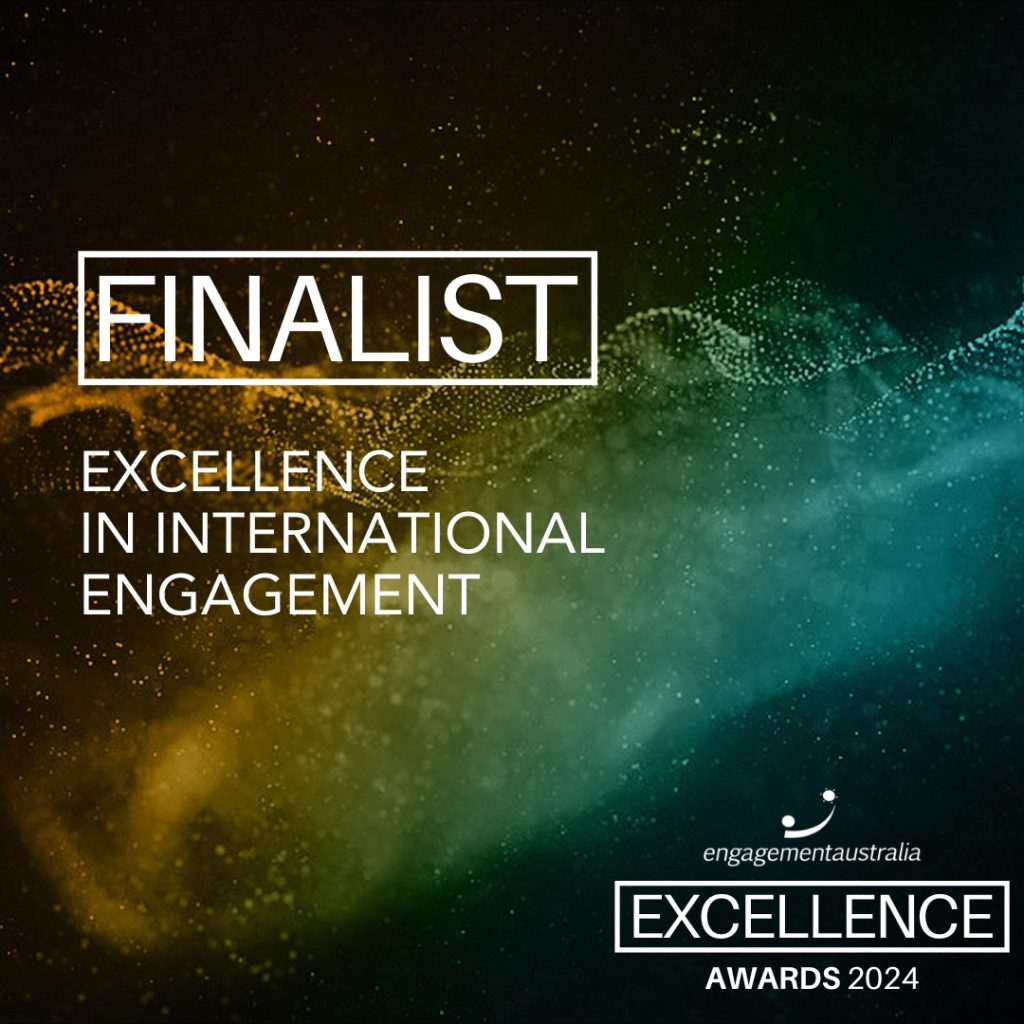
Empowering Communities and Managing the Invisible Resource: The MARVI Project's Transformative Impact on Groundwater Management in India, Western Sydney University
The MARVI project is a transformative, transdisciplinary project led by Western Sydney University in collaboration with Australian and Indian partners. MARVI commenced in 2012 and continues to empower local communities to become active participants in monitoring and managing their groundwater. By training farmers and providing them with tools like the MyWell app, the project has fostered a sense of ownership and responsibility for sustainable groundwater use and improved livelihoods. The project’s success has led to the adoption of the MARVI approach by the Indian Government as part of its national groundwater management program, impacting thousands of villages across seven states.
Science Circus International, Australian National University
The Australian National University Science Circus International capacity building program uses dynamic partnerships to establish STEM engagement in low- and middle-income countries (LMICs). The program has directly engaged 88,285 people and trained 383 partner staff through in-country programs, with partners reaching more than 200,000 people through subsequent independent programs. With strategic support and capacity building, the project’s partners have established public interactive science centres in Samoa, Uganda and Kenya – the first in the regions. At the heart of the model are enduring partnerships sharing and delivering ambitious visions for locally led and community relevant STEM engagement in LMICs.
Pacific Islands Virtual Online Training in Surgery (PIVOTS), Monash University
The Pacific Islands Virtual Online Training in Surgery (PIVOTS) project, developed by Monash Children’s Simulation (MCS), aims to provide virtual remote, simulation-based surgical education to surgeons and trainees in low-resource countries within the Pacific Islands. The programme aims to improve knowledge and application of the fundamental principles of surgical practice and clinical outcomes within the constraints of each setting. This training innovation utilises a sustainable, comprehensive surgical learning virtual platform and remote laparoscopic (keyhole) simulation-based education in portable learning laboratories. This programme has been delivered in Fiji, Samoa, and Vanuatu with expansion to other Pacific Islands in the future.
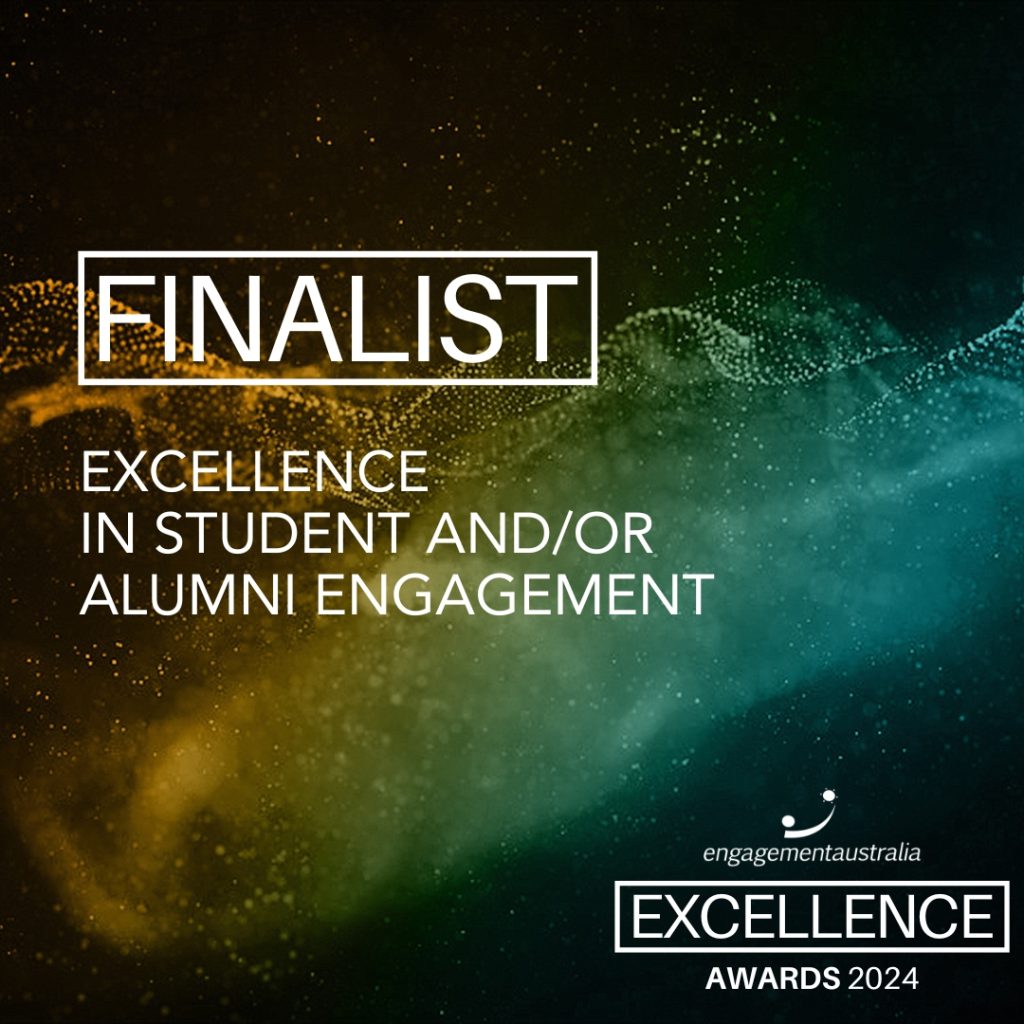
Wonder of Science, The University of Queensland
Wonder of Science, a future-focused program fostering a STEM culture that greatly enhances participation, engagement, and empowerment of Australian students via access to high-quality, evidence-based STEM education. Specifically, a culture where all students, their teachers, parents and community members understand and value the importance and potential of Science, and STEM pathways and careers. We are challenging the status quo, supporting women and girls in STEM, students in rural and regional areas, students from low-SES, indigenous students, and neurodiverse students. Wonder of Science trains and develops PhD student ambassadors and science graduates to deliver impactful STEM education across Queensland schools.
Advancing the Biomedicine Student & Alumni Experience - Suite of Programs, University of Melbourne
This application from the Marketing, Communication & Events team, School of Biomedical Sciences, demonstrates a commitment to enhancing student and alumni engagement through an impactful Suite of Programs, including a Careers Roundtable Event Series, designed for undergraduate students; Alumni Networking Meet-Ups Pilot Program to ensure graduates remain connected to their university community; an Outreach Events Program aimed at inspiring the next generation of biomedical scientists, doctors and health professionals – and our Key Campaigns: Meet Our Talent, In the Lab and the Master of Biomedical Science spotlight series promoting research in the biomedical precinct and attracting future graduate research students.
Griffith Sports College, Griffith University
Griffith Sports College (GSC) is Griffith University’s elite athlete support program. GSC supports around 550 elite athletes annually in balancing their academic and sporting careers, offering tailored assistance, flexible study options and career development opportunities. The program fosters a supportive community, improves student retention and success rates while creating a strong alumni network. GSC’s innovative approach has set a benchmark in integrating sports and education within Australia, with the largest program nationwide. At the time of writing, Griffith students have won 8 gold and 3 silver medals at the Paris Olympics and are uniquely well-supported to build post-Olympic careers.
The Bridge of Hope Innocence Initiative, RMIT University
The Bridge of Hope Innocence Initiative (BOHII) offers RMIT students a transformative, immersive work-integrated-learning experience. Students collaborate with academics and industry professionals to investigate wrongful conviction claims and raise awareness about errors in the criminal justice system. The only Australian innocence project to use an internship model, BOHII’s workplace design enables students to develop and apply transferable employability skills in real-world contexts. BOHII’s strong industry connections, including with legal entities and alumni, provide cross-disciplinary and cross-sectoral experiences rarely found in other internships. BOHII is nationally and internationally recognised and has raised the profile of wrongful convictions in Australia.
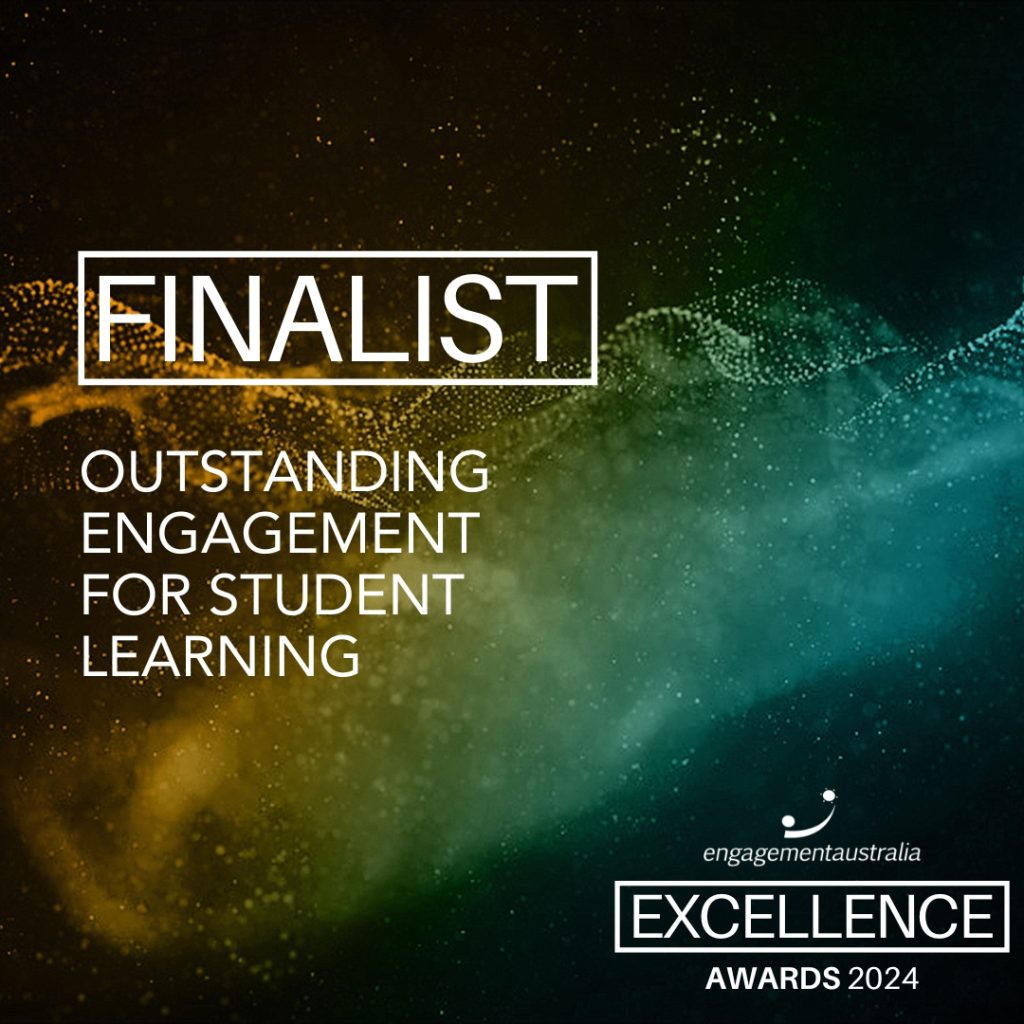
ITS Capstone: Industry Collaborative Approach for Graduate industry-readiness, University of Canberra
The ITS Capstone Program at University of Canberra integrates academic learning with practical application for solving real-world problems creating a win–win outcome for both sponsors and students. Through collaborative educational partnerships and work-integrated learning, final-year Undergraduate and Post-Graduate students work on projects under dual supervision of industry and academic mentors. This program aligns with UC’s ‘Connected’ strategy, exemplifying our commitment to producing industry-ready graduates. It equips students with industry experience and transformative skills, fostering engagement with industry, leading to future employment opportunities and research collaborations. The program has benefitted more than 1000 students and 400 projects since 2019.
Western Sydney University’s strategic partnership with OpenLearning is pioneering the way that higher education providers create and deliver engaging and flexible lifelong learning for students, at scale, Western Sydney University
Western Sydney University’s strategic partnership with OpenLearning is pioneering the way that higher education providers create and deliver engaging and flexible learning for students, at scale. Leveraging Western’s partnership pedagogy framework and OpenLearning’s wealth of experience in supporting 200+ providers and 3 million+ learners globally, the partnership has successful supported nearly 10,000 learners access quality, on-demand microcredentials and pathway programs over the last 5 years. The partnership’s agility in responding to emerging workforce needs, commitment to innovation, and focus on impactful learning, positions both partners at the forefront of shaping the future of education.
Preparing students for the digital jobs of the future, The University of Queensland
For pioneering the ‘Digital Transformation Hackathon,’ a work-integrated teaching innovation that empowered over 1,900 undergraduate and postgraduate Business Information Systems students to date with essential skills for the future digital workforce. Initiated in 2021 through a partnership between The University of Queensland’s UQ Business School and ORACLE, this structured five-week program fosters job-readiness of students by enabling them to address complex societal challenges – including Australia’s housing crisis or the UN’s Sustainable Development Goals (SDGs) – using ORACLE’s suite of cloud technologies.
Engineering Sydney Industry Placement Scholarship - Creating the deep-tech talent pipeline, University of Sydney
Launched in 2019, The Engineering Sydney Industry Placement Scholarship (ESIPS) program enriches the learning experience of engineering students by immersing them in industry for six-months without extending their degree. ESIPS participation fulfills course requirements, allowing students to work full-time on innovative, industry-based thesis projects with sponsoring organisations. The program supports undergraduate deep-tech career pathways, and enhances Australia’s industry-university collaboration by exposing students to industry-led R&D. The University of Sydney builds long-term partnerships with world-leading and local innovative companies to provide students from diverse backgrounds with networks and job readiness skills in deep-tech, solving cutting-edge sustainability, health or business challenges.
UTS Shopfront: connecting community and students, University of Technology Sydney
Harnessing the power and knowledge of students, UTS Shopfront connects not-for-profit and social enterprise organisations with the university’s resources and expertise through flexible service-learning opportunities. With reciprocity and transformational learning at its core, Shopfront addresses the challenge many community organisations face in accessing expert services. In small teams, and supported by academics, students work alongside community as part of their disciplinary coursework on projects submitted by organisations. Offered in twelve subjects across the university, the program has impact by providing over 1,100 organisations with tangible assets that have assisted in building organisational capability and achieving their social impact missions.
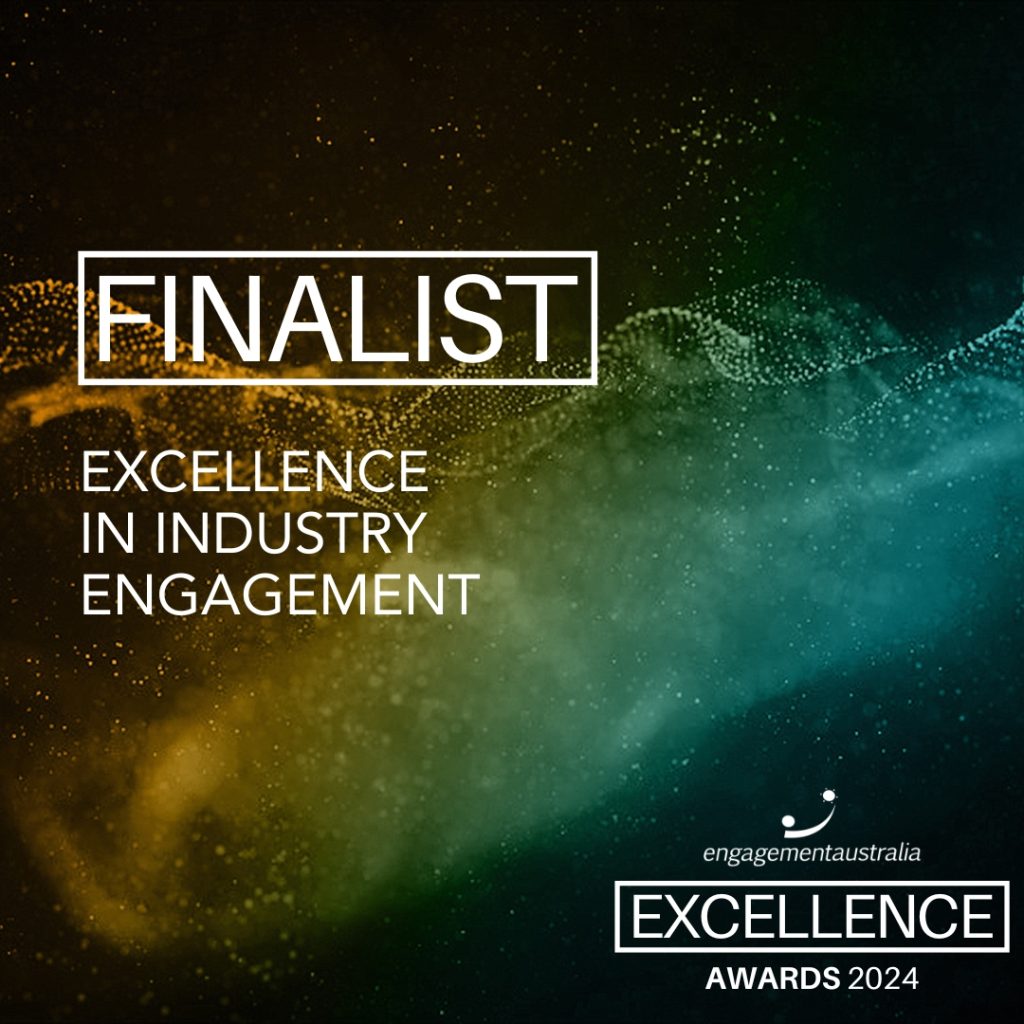
Industry Engagement in Australian Horticultural Education, Western Sydney University
Western Sydney University has achieved outstanding collaborations of mutual benefit with many horticultural industry partners and funding bodies – Hort Innovation, NSW Department of Education and NSW Department of Industry. The high-quality education and impact on industry engagement have been realised through our Emerging Leadership in Protected Cropping (2019-2024) and Tertiary Pathway in Protected Cropping (2017-2018) programs, evident by the large number of student enrolments and completions and multiple external education awards. The two programs have grown into one of the most successful horticultural courses in Australia and represent a significant opportunity for Australian horticultural industry into the future.
Sea Jellies Illuminated and the strategic partnership between Griffith University and Sea World, Griffith University
Sea Jellies Illuminated is a novel collaboration between Griffith University and Sea World that combines fully immersive, ethereal displays of sea jellies and a state-of-the-art sea jellies research laboratory. Located within the iconic Sea World Australia Marine Park, the glass walls of the Griffith Sea Jellies Research Laboratory allow visitors to watch scientists at work and to learn about sea jellies through interactive interpretive displays. Borne from a desire to promote marine science and conservation, provide opportunities for students, and to demystify science by enabling visitors to watch scientists undertaking experiments, Sea Jellies Illuminated has had >2 million visitors.
UQ Ventures Industry Challenge, The University of Queensland
UQ Ventures, the entrepreneurship arm of The University of Queensland, has a reputation and track record for delivering entrepreneurship programs with Industry Engagement outcomes at the core, domestically and internationally. The Ventures Industry Challenge was created to help deliver the UQ Entrepreneurship Strategy (2018 – 2022). A key objective of the Strategy is to ‘foster enterprising partnerships’ aiming to bringing together the UQ community and industry to solve challenges that require innovative solutions. Now in its fourth year, the Challenge demonstrates the power of interdisciplinary collaboration, bringing together students, industry, government, academics, and researchers to develop ground-breaking solutions to real-world problems.
Australian Laboratory for Emerging Contaminants (ALEC), University of Melbourne
The Australian Laboratory for Emerging Contaminants (ALEC), founded and led by Dr. Brad Clarke, pioneers industry-engaged research to address the environmental and public health risks of synthetic chemicals. ALEC brings together University of Melbourne academics to perform multidisciplinary research on novel pollutants and their health impacts. Partnerships with industry leaders such as Eurofins, Agilent Technologies, and Trajan have enabled the creation of a world-class analytical facility. This collaboration enhances environmental monitoring and public health protection while training the next generation of environmental scientists, ensuring sustainable practices and solutions for the future.
Advancing Wildlife Conservation and Welfare Together: A Partnership Between La Trobe University and Zoos Victoria, La Trobe University
La Trobe’s Wildlife Conservation and Reproductive Endocrinology Lab (WiCRE) works hand-in-hand with Zoos Victoria (ZV) to improve animal care and conservation outcomes, while also enhancing student training. The partnership combines WiCRE’s expertise in hormone analysis with ZV’s commitment to animal welfare to develop innovative, non-invasive tools to monitor stress and reproduction in wildlife species without impacting animals. The ongoing industry partnership, formalised in 2022, has led to optimised breeding programs, improved overall animal well-being and advanced conservation of endangered Australian wildlife, such as the pioneering approach of using scent detection dogs to identify reproductive status in Tasmanian

Associate Professor Nicole Carnt, The University of New South Wales
Over 60% of Australians wear spectacles, contact lenses or both, with contact lenses offering a number of significant advantages over spectacles including better peripheral vision. However, contact lens wear is a major risk factor for corneal infection, known as keratitis. This is a leading cause of preventable blindness in developed countries, with 1 in 4 of those affected by severe keratitis requiring a corneal transplant. A/Professor Nicole Carnt’s engagement with patients, optometrists, ophthalmologists, pharmacists, industry, and regulators has led to innovative advancements which are reducing the risk, severity and suffering of keratitis in contact lens wearers.
Professor Richard John, Griffith University
Engagement in STEM has long been recognised as an important priority in Australia, particularly amongst underrepresented groups. Richard John’s leadership in STEM community engagement has substantially impacted communities across Queensland and Australia. Over 20 years, he has created and led numerous community outreach/education programs, directly engaging 620,000 students, teachers, and community members – and millions more online and through educational resources. Enriched by his whole-of-community approach, Richard has developed crucial community networks to improve scientific literacy and educational outcomes (and access) for disadvantaged and underrepresented communities. The scale and strength of his collaborations underscores his influence and leadership in STEM engagement.
Joanne Orlando, Western Sydney University
Orlando’s cyber and AI safety advocacy centres on her leadership in Community Engagement and Awareness while driving policy-level changes. Her long-term campaign of community awareness and education includes initiatives like the award-winning “TechClever” digital safety program. Her ongoing media awareness campaign has provided critical resources, reaching millions and transforming public discourse. She has driven significant policy changes in big tech and education, ensuring these policies support and sustain local community safety initiatives. Her collaborative research efforts have informed global safety frameworks. In 2024, her presentation at the Saudi Arabian Royal Summit showcased her research, initiating a global cyber-AI safety framework for children.
Dr. Kevin Argus, RMIT University
With Dr. Kevin Argus’ leadership, organisations such as Aurecon and Transurban have access to inclusive design, a human-centred design methodology, from people living with a disability. Over the past four years, Dr Argus has involved 135 MBA and Executive MBA students to lead the transformative “Beyond box-ticking: Creating Shared Value in Social Procurement” project. This resulted in a co-designed marketing plan and the launch of a new consultancy arm at Ability Works. Using ethnographic methods, Dr. Argus’s contributions have significantly impacted academic understanding and practical applications of realising shared value. His leadership facilitated a balanced partnership dynamic between Ability Works, RMIT, Apricot Consulting, and Aurecon
